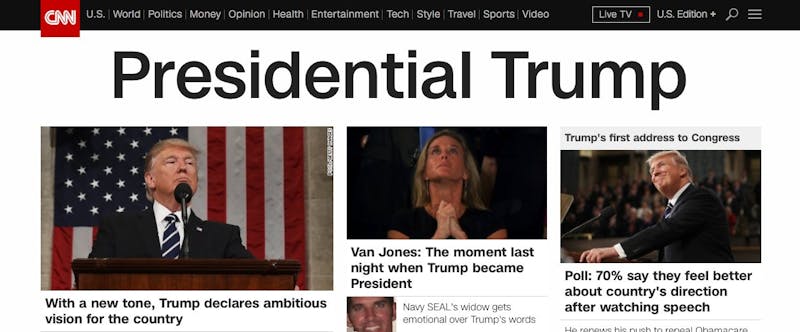By the time Mitt Romney selected him to be his running mate in 2012, Paul Ryan (then chairman of the House Budget Committee) had already cultivated a reputation within Washington’s political press corps of an earnest, well-meaning numbers guy. Ideological? Sure, maybe, but not at the expense of mathematic and analytic truth.
There were, to be clear, many problems with that depiction, but his ability to burnish it over the years in the face of facts (an anti-poverty crusader whose policies would strip health insurance from millions?) has been the hallmark of his career.
Yet for a brief moment that election summer, the Ryan mythos fell into doubt. In accepting his party’s nomination for the vice presidency, Ryan delivered a speech riddled with easily checked falsehoods and exaggerations. At a moment when reporters were scrutinizing him more closely than ever before, finding questionable assertions and padded resume lines, Ryan needed to play his convention speech unusually straight. Instead, among other things, he blamed President Barack Obama for the shuttering of a GM plant in his district that shut down before Obama took office, and for the failure of a fiscal policy commission that Ryan personally sabotaged.
Obviously the damage Ryan did to himself with his most powerful fanbase wasn’t permanent. It didn’t even last very long. But at least the political press corps took notice, and said something.
President Donald Trump has discovered, perhaps unwittingly, how to hack the Ryan problem. Where Ryan has built himself up as an honest, poised man of substance, Trump not only has never pretended to these particular virtues, he has delighted in demonstrating their political uselessness.
This is why he was able to deliver a thoroughly dishonest, scapegoating first address to Congress—the kind of speech that makes Ryan’s 2012 keynote seem George Washington-esque—and nevertheless win rave reviews from the political commentariat.
Trump’s moral and ethical failings are legion. He is the villain of all his own triumphant and disgraceful sagas. But the plot of this chapter is about a political press corps (not the investigators slowly piecing together the unseemly details of Trump’s foreign entanglements, but the ones who cover day-to-day news and theater) that is outmatched and completely maladapted for the challenge he poses.
Many of the same people now tasked with communicating what matters about Trump’s presidency to the public also covered Trump’s campaign, where they returned serially to the storyline of the pivot, the softening, wherein simply reading a scripted and not-entirely-unhinged speech from beginning to end marked a new beginning for him.
There is apparently less capacity for living and learning in political journalism than there is in elementary school; less object permanence than in nursery school.
I'm just reading the gushing coverage and understanding better how Trump got to be president. My story's posting soon. It's different.
— Michael Grunwald (@MikeGrunwald) March 1, 2017
Trump’s shows of relative restraint on the campaign trail were always temporary, and generally served as memory holes for offenses against Gold Star parents, beauty show contestants, and sexual assault victims. He rode temporary bouts of “discipline,” celebrated by a political media that failed to raise their bar for his conduct, all the way to the White House, where his erratic and unseemly behavior continues.
On Tuesday night, in vintage fashion, Trump offered few details to back up empty promises. He alluded to courtroom convictions to create the false impression that terrorism in the U.S. is principally a consequence of weak vetting and porous borders—a false justification for his Muslim ban, which the courts have enjoined. He cited an increase in homicides in 2015 to foster the impression that violent crime is at a historic high, rather than a historic low. He outsourced to Defense Secretary James Mattis a lie about a raid he ordered in Yemen—which resulted in the death of a Navy SEAL, numerous civilians, and an eight-year-old American girl—falsely heralding it as “a highly successful raid that generated large amounts of vital intelligence.” Hours earlier, Trump had blamed his own military planners and Obama for its obvious failure. He also claimed to support NATO, which he has previously described as obsolete.
What Trump didn’t do was reprise his assault on the press corps, which he has described as an “evil” “enemy of the people.” For that simple omission, Trump was able to deliver a tour de force of lies and insincerity, and be rewarded like so:

It is possible in some statistical sense that Trump will adjust to the realities of his job, permanently stop labeling unflattering journalism “FAKE NEWS,” and earn the mantle of presidentialism—even if his policies continue to strike me as abhorrent. But he did not do that Tuesday night. All he did was demonstrate once again that his supposed antagonists in the political media have short memories, which makes them easy marks for a tired con.
